Filter by
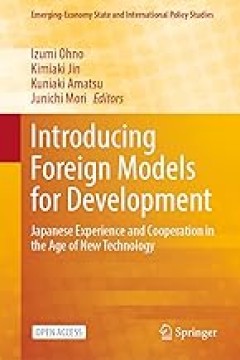
Introducing Foreign Models for Development
This open access book studies how foreign models of economic development can be effectively learned by and applied to today’s latecomer countries. Policy capacity and societal learning are increasingly stressed as pre-conditions for successful catch-up. However, how such learning should be initiated by individual societies with different features needs to be explained. The book answers this p…
- Edition
- -
- ISBN/ISSN
- 978-981-99-4237-4
- Collation
- XXVI, 338
- Series Title
- -
- Call Number
- -
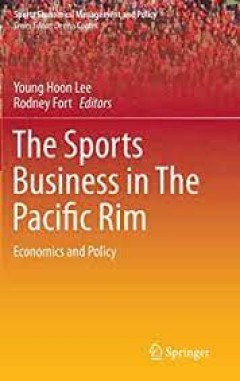
The Sports Business in the Pacific Rim Economics and Policy
Following consistent and rapid general economic growth, Pacific Rim countries have grown as a major force in sports. Australia, China, Japan and Korea populated the top ten medals list at the 2012 London Olympics. Pacific Rim countries are major consumers of international sports and domestic professional sports have expanded continuously over time. Nippon Professional Baseball and the Korean Ba…
- Edition
- -
- ISBN/ISSN
- 978-3-319-10037-1
- Collation
- -
- Series Title
- -
- Call Number
- -
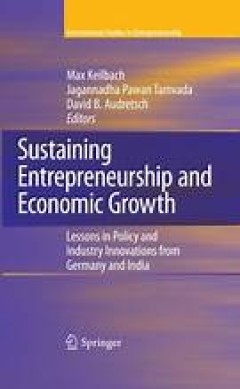
Sustaining Entrepreneurship and Economic Growth
Academic research on developed countries has scientifically evaluated the role of entrepreneurship on economic growth, market expansion, commercializing innovation, and reducing unemployment. In this research, regions or industries with higher rates of entrepreneurship show higher levels of innovation and economic growth. The literature on entrepreneurship and innovation has largely ignored dev…
- Edition
- 1
- ISBN/ISSN
- 978-0-387-78695-7
- Collation
- Ekonomi
- Series Title
- -
- Call Number
- 330
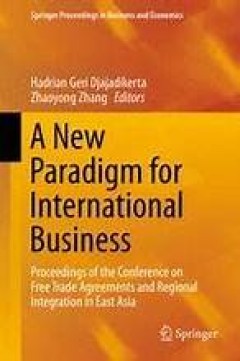
A New Paradigm for International Business
This book offers a collection of studies on regional integration and the dynamic business environment in East Asia. The papers included, originally presented at the 2014 Asia Pacific Business Conference on "Free Trade Agreements and Regional Integration in East Asia," examine the challenges and dynamics in the increasingly integrated East Asian markets and outline a new paradigm for doing inter…
- Edition
- 1
- ISBN/ISSN
- 978-981-287-499-3
- Collation
- Business Management
- Series Title
- -
- Call Number
- 650
Exchange Rate Volatility and Macroeconomic Performance in Nigeria
- Edition
- -
- ISBN/ISSN
- 978-1-83969-881-1
- Collation
- -
- Series Title
- -
- Call Number
- -
Foreign Direct Divestment Phenomenon in Selected Sub-Saharan African Countries
- Edition
- -
- ISBN/ISSN
- 978-1-83969-881-1
- Collation
- -
- Series Title
- -
- Call Number
- -
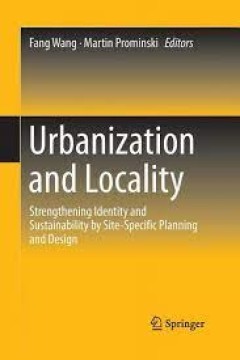
Urbanization and Locality Strengthening Identity and Sustainability by Site-…
Based on a discussion of conflicts in the urbanization process, this book provides theoretical and practical solutions for the preservation and development of urban localities. On the basis of informative case studies, it reveals the similarities and unique aspects of urbanization in Germany and China. The process of urban growth and the future trend of locality and urbanization are also examin…
- Edition
- -
- ISBN/ISSN
- 978-3-662-48494-4
- Collation
- -
- Series Title
- -
- Call Number
- -

Engaging urban research in policy making: Towards equitable economic growth. …
Cities are considered “engines of economic growth,” yet many cities in the global South struggle to increase productivity and provide significant economic opportunities for their growing populations. There is a need to deepen the knowledge on the links between public goods and services and equitable economic growth and how to support such processes, in policy and strategic terms, locally an…
- Edition
- Ed. 1
- ISBN/ISSN
- 9783798332270, 9783798332270
- Collation
- 130
- Series Title
- -
- Call Number
- 338.9 ENG e

Industry-Led Growth Issues and Facts
The book explores, for India and other developing countries, the potential role the organized manufacturing sector could play as an engine of growth. Alongside growth, can this sector generate adequate employment opportunities to facilitate the transfer of labour from the agriculture sector? The book identifies the major constraints that result in limited demand for labour in the organised manu…
- Edition
- -
- ISBN/ISSN
- 978-981-10-0007-2
- Collation
- XIV, 88
- Series Title
- -
- Call Number
- 330 MIT i

Rethinking Economic Growth Theory From a Biophysical Perspective
Neoclassical growth theory is the dominant perspective for explaining economic growth. At its core are four implicit assumptions: 1) economic output can become decoupled from energy consumption; 2) economic distribution is unrelated to growth; 3) large institutions are not important for growth; and 4) labor force structure is not important for growth. Drawing on a wide range of data from the ec…
- Edition
- Ed. 1
- ISBN/ISSN
- 978-3-319-12826-9
- Collation
- -
- Series Title
- -
- Call Number
- -
 Computer Science, Information & General Works
Computer Science, Information & General Works  Philosophy & Psychology
Philosophy & Psychology  Religion
Religion  Social Sciences
Social Sciences  Language
Language  Pure Science
Pure Science  Applied Sciences
Applied Sciences  Art & Recreation
Art & Recreation  Literature
Literature  History & Geography
History & Geography